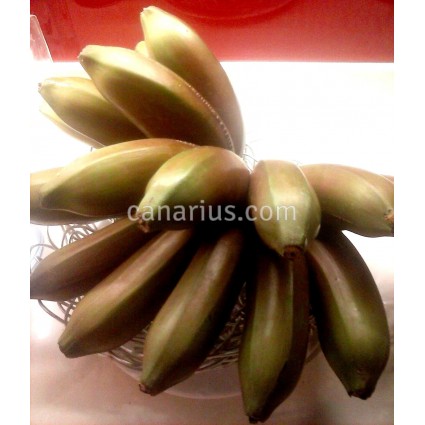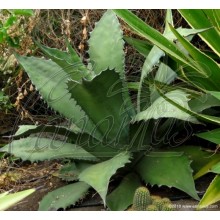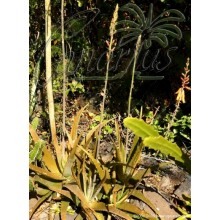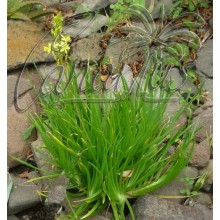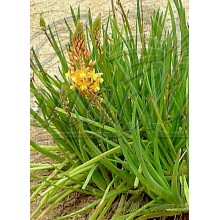Musa 'Figue Rose Naine' - Dwarf Red Banana
Spectacular, red-skinned banana. Plants are stout and leaves have purple leafstalks. Fruits are dark purple during ripening and then turn red with some yellow as they ripen. The flesh is pinkish and MUCH richer in vitamin
Nuovo
The Dwarf Red Banana
This dwarf banana tree of 3-4 m in height produces red-skinned dessert banana. These bananas are dark purple during ripening and turn red with some yellow as they ripen. Also, the plant has highly ornamental purple leafstalks and stem. Leaves are dark-green and wider than most bananas.
Many people claim that the flavor of red bananas is superior to that of the Cavendish, the classic yellow banana carried in most stores. The skin of a red banana may be anywhere from dark red to almost purple, and the flesh is cream to slightly pink in color, MUCH richer in vitamines! These bananas are plumper and smaller than Cavendish bananas, with a sweet, creamy flavor. Sometimes, there may be a hint of a berry taste in a red banana, and these bananas are also very aromatic.
The Variety Figue Rose Naine
Figue Rose Naine is a clone of the widespread cultivar named Dwarf Red Banana, an AAA banana type also known as Dwarf Cuban Red. Figue Rose is the name given in Martinique and this is a medium-sized variety introduced from there to the Canary Islands in the early 90's. "Naine" means dwarf and this is because the plant is short (3-4 m tall) but it is very stout and robust. This type of banana has now been reproduced in-vitro in the Canary Islands.
Protect from temperatures below 8 C, especially young plants. This banana tree is cold sensitive, just as most AAA type bananas (like the common yellow Cavendish bananas of the supermarket).
What do we ship?
We ship a stout rooted sucker, not a potted plant. You will receive it with the corm wrapped in a bag with moist sphagnum or perlite.
In spring, suckers may not have roots. In this case, suckers are easy to root if temperatures are kept between 20 and 30 C.
| Coltivazione | Protetta |
| Origine della pianta | Asie |
| Presentazione | Radice nuda |
| Dimensione massima | 250cm-300cm |
| Famiglia botanica | Musaceae |
| Luce | Sole |
| Temperatura minima in inverno | 10 ºC a 15 ºC |
| Tipo pianta | Erbacee |
| Colore | Rosso |
| Colore | Viola |
| Cura | Vaso |
| Forma | Perenni |
| Forma | Palme e simili |















